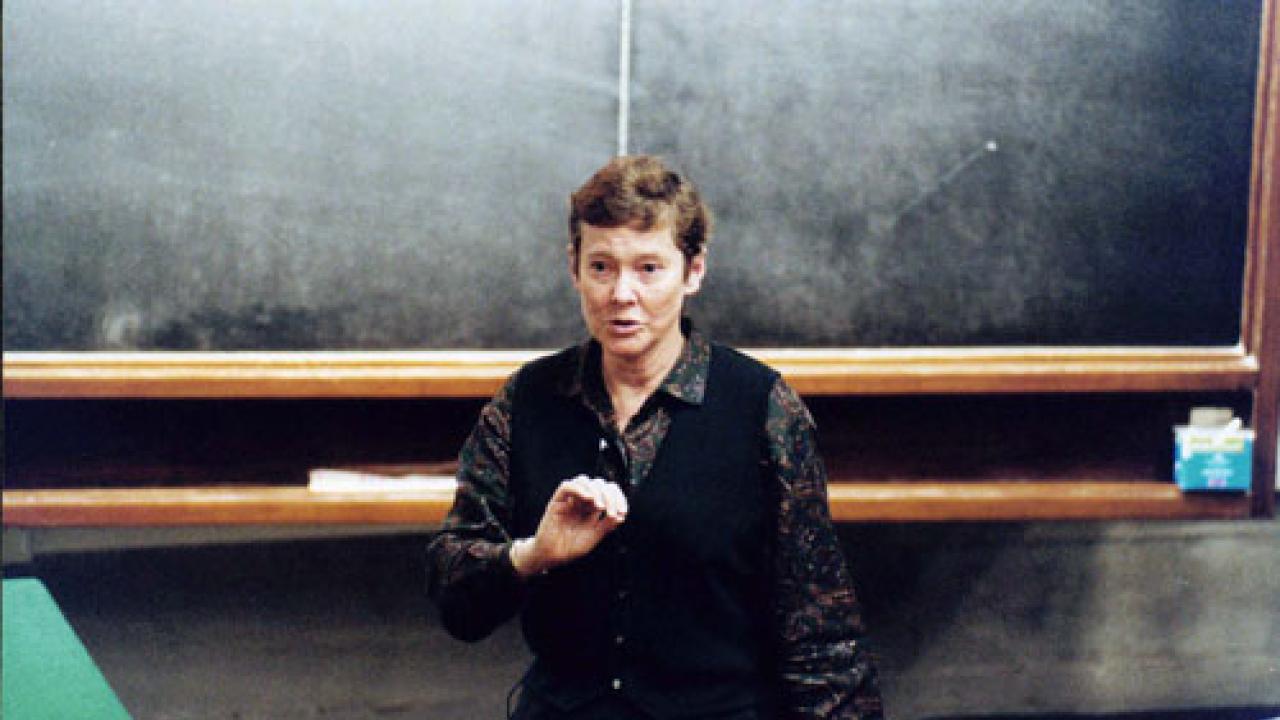
ICTP is honored to welcome Dirac Medallist Helen Quinn back to Trieste for an ICTP Colloquium entitled “What Research on Learning Tells Us About Teaching Physics” on Wednesday, 22 November 2017, at 16:30. Quinn is an internationally recognized particle physicist, famous for her work on the phenomenology of weak interactions, and an emeritus professor at the Stanford Linear Accelerator Center.She was recently awarded the Franklin Institute's 2018 Benjamin Franklin Medal in Physics for her accomplishments in the field of particle physics, in particular her pioneering efforts in developing a unified theory of the electromagnetic, weak and strong interactions.
For this visit to ICTP, Quinn will not be speaking about her work on bottom quarks or antimatter, but instead address another thread of her career. In recent years Quinn has turned her efforts to investigating how science is taught in schools, diving into research on making science teaching more effective.
Science education has been a long-term cause for Quinn. She was a co-founder and the first president of the Contemporary Physics Education Project (CPEP), an organization of teachers, educators, and physicists, formed in 1987. This background led her to join, and then chair from 2009-2014, the Board of Science Education of the National Academy of Sciences (NAS), after she was elected to NAS membership in 2003. Speaking to Quanta Magazine, Quinn said “As a scientist, if you think you know something without having done any research on it, you probably don’t know. So I said, who does understand what’s effective in teaching science?”
Quinn’s tackling of this question forms the basis of her ICTP talk, as well as to the “Framework for K-12 Science Education,” which the many diverse experts of the Board of Science Education produced. This Framework led to the Next Generation Science Standards (NGSS), guidelines for teaching science that have now been adopted across the United States.
The NGSS boil down to a key main idea, Quinn says. “You have to engage the students in doing things in order for the learning to become meaningful. Just memorizing knowledge that other people have produced doesn’t really lead to transferable knowledge.” For her work in science education, Quinn was awarded the Karl Taylor Compton Medal for physics outreach from the American Physical Society, and CPEP earned the 2017 Excellence in Physics Education Award, also from APS.
“The question is,” Quinn says, “How do you change learning so that the knowledge becomes much more integrated into the way a person approaches problems outside of school?”
The talk will be livestreamed on ICTP’s YouTube and Facebook pages, and the recorded talk will be archived on ICTP’s YouTube page.
















